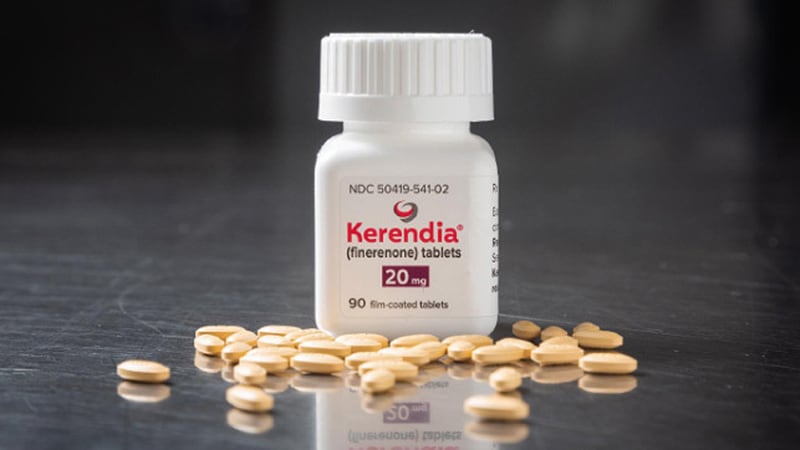Impact of Reducing Albumin on Kidney and Heart Function in Type 2 Diabetes
Core Concepts
Reducing urine albumin-to-creatinine ratio (UACR) significantly reduces kidney and heart risks in type 2 diabetes.
Abstract
TOPLINE:
Reducing UACR lowers kidney risk in type 2 diabetes.
METHODOLOGY:
Retrospective analysis of finerenone trials in type 2 diabetes and chronic kidney disease.
Examined records of 12,512 participants to quantify health effects.
Tracked health indicators for up to 4 years.
TAKEAWAY:
Over half of finerenone recipients reduced UACR by 30% at 4 months.
Placebo group had minimal UACR reduction.
30% UACR reduction lowered kidney risk by 64% and cardiovascular risk by 26%.
IN PRACTICE:
Early UACR reduction benefits kidney and heart health.
SOURCE:
Study published in Annals of Internal Medicine by Rajiv Agarwal, MD, MS.
LIMITATIONS:
Findings specific to finerenone, not generalizable to other drugs.
DISCLOSURES:
Study funded by Bayer AG Pharmaceuticals, with contributions from NIH and VA.
Reducing Albumin Improves Kidney and Heart Function
Stats
Over half of participants reduced UACR by at least 30% at 4 months.
UACR reduction of 30% lowered kidney risk by 64%.
UACR reduction of 30% lowered cardiovascular risk by 26%.
Quotes
"Achieving early UACR reduction can lead to tangible benefits for kidney and cardiovascular health." - Study authors
Key Insights Distilled From
by Marcus A. Ba... at www.medscape.com 12-04-2023
https://www.medscape.com/viewarticle/999017
Deeper Inquiries
How does early UACR reduction impact long-term health outcomes beyond the study period?
The early reduction of urine albumin-to-creatinine ratio (UACR) has shown significant benefits in improving long-term health outcomes beyond the study period. By reducing UACR levels, individuals with type 2 diabetes and chronic kidney disease can experience a decreased risk of kidney failure, improved glomerular filtration, and reduced mortality from kidney disease. Additionally, a reduction in UACR has been linked to a lower cardiovascular risk, leading to fewer incidences of cardiovascular death, nonfatal infarction or stroke, and hospitalization for heart failure. These findings suggest that early UACR reduction can have lasting positive effects on both kidney and heart function, ultimately improving overall health outcomes in the long term.
What are the potential drawbacks or limitations of focusing solely on UACR reduction in managing kidney and heart health?
While reducing urine albumin-to-creatinine ratio (UACR) has been shown to have significant benefits in managing kidney and heart health, there are potential drawbacks and limitations to solely focusing on this aspect. One limitation is that the study specifically pertains to the drug finerenone, so the findings may not be generalizable to other medications with different mechanisms of action. Additionally, focusing solely on UACR reduction may overlook other important factors contributing to kidney and heart health, such as blood pressure control, blood glucose management, and lifestyle modifications. It is essential to consider a holistic approach to managing diabetes and its complications, including kidney and heart health, rather than relying solely on UACR reduction.
How can the findings of this study be applied to improve overall diabetes management strategies?
The findings of this study can be applied to enhance overall diabetes management strategies by emphasizing the importance of early UACR reduction in individuals with type 2 diabetes and chronic kidney disease. Healthcare providers can use this information to prioritize interventions that target UACR reduction, such as the use of medications like finerenone, in their treatment plans for patients at risk of kidney and heart complications. Additionally, the study highlights the need for regular monitoring of UACR levels to assess treatment effectiveness and adjust management strategies accordingly. By incorporating early UACR reduction as a key component of diabetes management, healthcare professionals can work towards improving outcomes related to kidney and cardiovascular health in individuals with type 2 diabetes.
0
